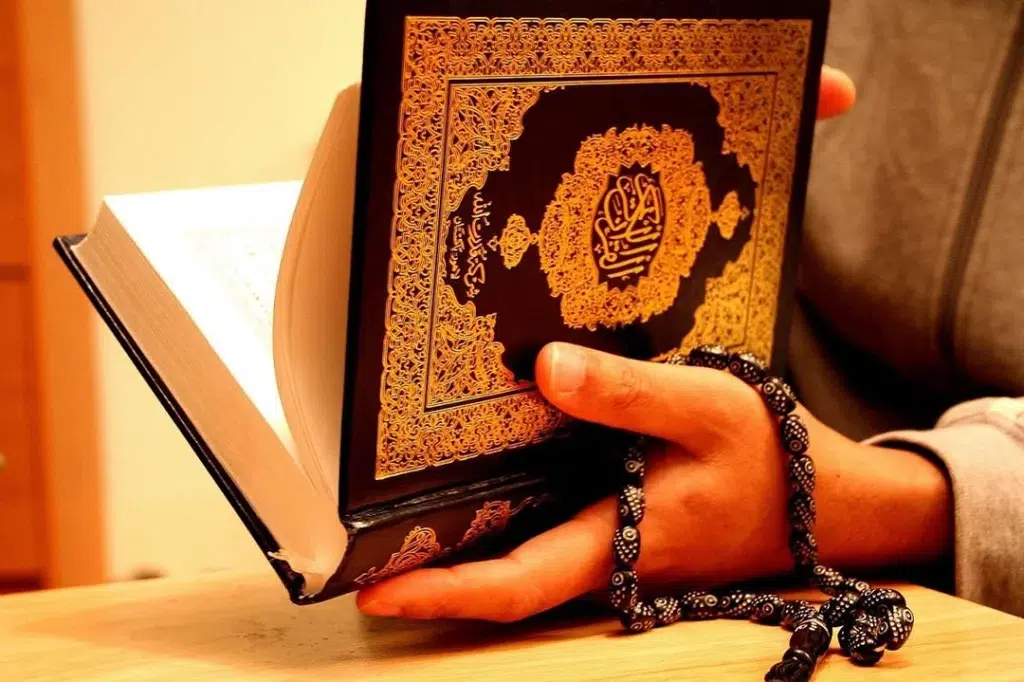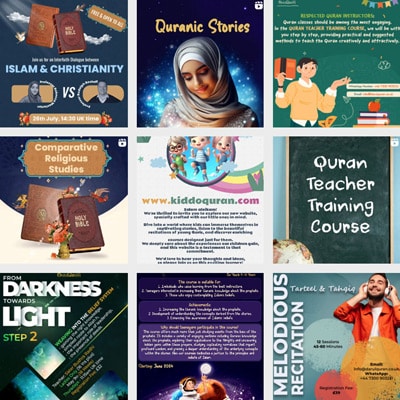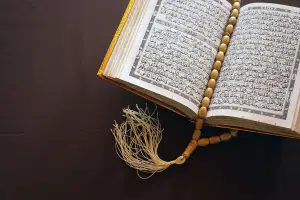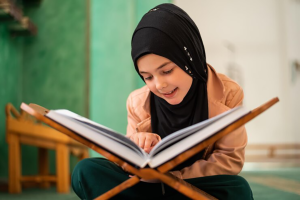Losing one’s eyesight is easier than losing one’s insight.
Ali ibn Abi Talib (a)
Table of Contents
ToggleSocial ethics in the Holy Quran encompasses a wide range of principles and values that guide the behavior and interactions of individuals within society. It offers profound insights into the moral and ethical responsibilities of individuals towards their fellow human beings, emphasizing justice, compassion, honesty, respect, and social responsibility.
The teachings of Quran not only lay down fundamental ethical guidelines but also provide practical wisdom for living a harmonious and virtuous life in modern society.
The Concept of Justice and Equality
Principle of Fairness
The Sacred Quran emphasizes the principle of fairness in numerous verses, highlighting the importance of treating others with respect and dignity, regardless of their background or beliefs.
In Surah Al-Hujurat, verse 13, it is stated, “O mankind, indeed We have created you from male and female and made you peoples and tribes that you may know one another.
Indeed, the most noble of you in the sight of Allah is the most righteous of you. Indeed, Allah is Knowing and Acquainted.”
This verse emphasizes the equality of all human beings in the eyes of Allah, highlighting the importance of treating others with fairness and justice.
Regardless of our differences in race, religion, or social status, we are all equal in the sight of Allah, and it is our deeds and character that determine our worth.
Furthermore, the Noble Quran also teaches the principle of justice in the treatment of others. In Surah An-Nisa, verse 135, it is stated, “O you who have believed, be persistently standing firm in justice, witnesses for Allah, even if it be against yourselves or parents and relatives.
Whether one is rich or poor, Allah is more worthy of both. So follow not [personal] inclination, lest you not be just. And if you distort [your testimony] or refuse [to give it], then indeed Allah is ever, with what you do, Acquainted.”
This verse emphasizes the importance of standing firm in justice and fairness, even if it goes against our personal interests or relationships. It is essential to treat others with fairness and honesty, regardless of the consequences, as Allah is the ultimate judge of our actions.
Universal Brotherhood
The Heavenly Quran, as the holy book of Muslims, teaches believers to treat others with kindness, compassion, and respect, regardless of their background, ethnicity, or social status.
This principle serves as a guiding force for creating a just and harmonious society that upholds the rights and dignity of every individual.
The Sacred Quran emphasizes the importance of brotherhood and unity among all people, regardless of their differences.
In Surah Al-Hujurat, verse 13, Allah says, “O mankind, indeed We have created you from male and female and made you peoples and tribes that you may know one another.
Indeed, the most noble of you in the sight of Allah is the most righteous of you. Indeed, Allah is Knowing and Acquainted.” This verse highlights the diversity within humanity and the underlying message that all individuals are equal in the eyes of Allah, with righteousness being the only distinguishing factor.
Furthermore, the Grand Quran emphasizes the need for compassion and empathy towards others, regardless of their beliefs or practices.
In Surah Al-Mumtahina, verse 8, it states, “Allah does not forbid you from those who do not fight you because of religion and do not expel you from your homes – from being righteous toward them and acting justly towards them.
Indeed, Allah loves those who act justly.” This verse emphasizes the importance of treating others with fairness and justice, regardless of their religious or cultural differences.
The concept of universal brotherhood in Islam extends beyond mere words or beliefs; it is a call to action for Muslims to actively engage in promoting justice and equality in society.
The Glorious Quran instructs believers to stand up for the rights of the oppressed and marginalized, regardless of their race, religion, or social status.
In Surah An-Nisa, verse 135, it states, “O you who have believed, be persistently standing firm in justice, witnesses for Allah, even if it be against yourselves or parents and relatives.
Whether one is rich or poor, Allah is more worthy of both. So follow not [personal] inclination, lest you not be just. And if you distort [your testimony] or refuse [to give it], then indeed Allah is ever, with what you do, Acquainted.”
The concept of universal brotherhood as the foundation of justice and equality in Islam is a powerful reminder for believers to treat others with kindness, compassion, and fairness.
By following the teachings of Quran, Muslims can strive to create a society where every individual is respected and valued, regardless of their differences. Ultimately, the concept of universal brotherhood serves as a guiding principle for building a just and equitable society, where all individuals can live together in peace and harmony.

Compassion and Kindness towards Other
Empathy and Understanding
One of the central teachings of the Sacred Quran is the concept of “rahmah” or compassion.
The Grand Quran states that Allah is the most compassionate and merciful, and encourages believers to follow in His footsteps by showing compassion towards others.
This compassion is rooted in empathy and understanding towards others, as the Heavenly Quran teaches that we should treat others the way we would like to be treated ourselves.
Furthermore, Quran emphasizes the importance of understanding and respecting the differences among individuals. It encourages believers to be tolerant and accepting of others, regardless of their beliefs, background, or social status.
This understanding and acceptance of diversity fosters compassion and kindness towards others, and helps to build a more harmonious and inclusive society.
The Noble Quran also teaches that true kindness and compassion should extend to all living beings, not just humans. The Prophet Muhammad (S) taught that kindness towards animals is rewarded by Allah, and that believers should show compassion and mercy towards all creatures.
In Surah Al-Isra, verse 23-24, Quran instructs believers to show kindness and compassion towards their parents, saying, “And lower to them the wing of humility out of mercy and say, ‘My Lord, have mercy upon them as they brought me up [when I was] small.” This verse exemplifies the importance of showing empathy and understanding towards our elders, and highlights the need to treat them with kindness and compassion.
Acts of Kindness
The Noble Quran repeatedly stresses the importance of being kind and compassionate to others, regardless of their religion, ethnicity, or social status.
One of the main teachings in the Sacred Quran is the concept of “sadaqah,” which refers to acts of kindness and charity towards others.
In Surah Al-Baqarah, verse 261, Allah says, “The example of those who spend their wealth in the way of Allah is like a seed of grain that sprouts and produces seven ears, and in every ear there are a hundred grains.
Thus Allah multiplies the action of those who do good deeds.” This verse highlights the importance of giving to those in need and the rewards that come from such acts of kindness.
Furthermore, in Surah Al-Ma’un, verses 4-7, Allah warns against those who neglect acts of kindness towards others, saying, “Woe to those who pray but are heedless of their prayer; those who make a display of their deeds; but refuse help to the needy.” These verses serve as a reminder that true faith is not just about performing rituals, but also about showing compassion and kindness to others.
In another verse from the Sacred Quran, Surah Al-Isra, verse 26, Allah says, “And do good to parents, kinsfolk, orphans, the needy, the neighbor who is near of kin, the neighbor who is a stranger, the companion by your side, the wayfarer ye meet, and what your right hands possess: for Allah loveth not the arrogant, the vainglorious.” This verse emphasizes the importance of showing kindness and compassion to all those around us, regardless of their relationship to us or their social status.
Acts of kindness towards others are not limited to material help; it can also be expressed through our words and actions. The Prophet Muhammad (S) said, “The best among you are those who are best to their families,” highlighting the importance of showing kindness and compassion even to those closest to us.
Treating Others with Respect
The Sacred Quran teaches us to be respectful towards all people, regardless of their background, beliefs, or social status. In Surah Al-Hujurat, verse 13, Allah says, “O mankind, indeed We have created you from male and female and made you peoples and tribes that you may know one another.
Indeed, the most noble of you in the sight of Allah is the most righteous of you. Indeed, Allah is Knowing and Acquainted.”
This verse emphasizes the importance of knowing and respecting each other, regardless of our differences. It reminds us that our differences are a sign of Allah’s wisdom and that we should treat each other with dignity and respect.
Treating others with respect is also a way to show compassion and kindness. The Prophet Muhammad (S) said, “None of you truly believes until he loves for his brother what he loves for himself.” This hadith teaches us to treat others with the same kindness and compassion that we would want for ourselves.
Showing respect towards others is a reflection of our faith and our character. It is a way to demonstrate our commitment to the teachings of Islam and to live by the principles of compassion and kindness. In Surah Al-Isra, verse 53, Allah says, “Tell My servants that they should say only those things that are best. Satan always tries to stir up trouble between them. Satan is a sworn enemy of man.”
This verse highlights the importance of speaking kindly and respectfully to others. It reminds us that our words can have a profound impact on those around us and that we should always strive to communicate with empathy and respect.

Importance of Honesty and Integrity
Moral Rectitude
Honesty is a fundamental principle of Islam and is emphasized throughout the Noble Quran. Allah commands in Surah Al-Imran, verse 95: “And be not like those who forgot Allah, so He made them forget themselves.
Those are the defiantly disobedient.” This verse serves as a reminder that forgetting Allah leads to a loss of moral integrity. Being honest in all aspects of life, whether it be in our words, actions, or intentions, is a reflection of our commitment to Allah and his teachings.
Integrity, on the other hand, is closely related to honesty but goes a step further in encompassing the idea of consistency in our moral values and behavior. The Heavenly Quran emphasizes the importance of integrity in Surah Al-Maidah, verse 8: “And do not let hatred for a people keep you from being just.
Be just; that is nearer to righteousness. Fear Allah; indeed, Allah is Acquainted with what you do.” This verse emphasizes the importance of upholding justice and fairness in all aspects of our dealings with others, regardless of our personal biases or prejudices.
The Grand Quran also highlights the consequences of dishonesty and lack of integrity. In Surah Al-Baqarah, verse 188, it is stated: “And never consume one another’s wealth unjustly or send it in bribery to the rulers in order that you may consume a portion of the wealth of the people in sin, while you know.”
This verse serves as a warning against the temptation to engage in dishonest practices for personal gain, emphasizing the importance of maintaining moral rectitude in all of our interactions.
Ethical Conduct
One of the key ethical principles that must be upheld in Tafsir is honesty.
Tafsir scholars must be truthful and sincere in their interpretations, avoiding any distortion or manipulation of the Quranic text for personal gain or to suit their own agenda.
They must approach the Sacred Quran with humility and respect, recognizing that it is the divine word of Allah and not their own creation to be tampered with.
Integrity is another important ethical principle in Tafsir.
Scholars must strive to interpret the Glorious Quran with integrity, adhering to the authentic sources of Islamic teachings and avoiding any form of bias or prejudice.
They must base their interpretations on sound knowledge and understanding of the Holy Quran, the Sunnah, and the scholarly consensus of the past.
Furthermore, Tafsir scholars must exercise caution and responsibility in their interpretations.
They should refrain from making hasty conclusions or providing speculative interpretations without sufficient evidence or understanding.
It is important for them to acknowledge the limits of their knowledge and expertise and seek guidance from other scholars when necessary.
Respecting the diversity of opinions and interpretations in Tafsir is also crucial. While scholars may present their own interpretations, they should be open-minded and respectful towards the views of others.
Constructive dialogue and debate can enrich our understanding of the Grand Quran and help us appreciate its depth and complexity.
Lastly, Tafsir scholars must approach their work with a sincere intention and a sense of purpose. They should seek to benefit others and guide them towards a deeper understanding of the Holy Quran, rather than seeking fame, recognition, or material gain.
Their primary goal should be to serve the community and uphold the teachings of Islam with integrity and excellence.

Respect for Human Dignity and Rights
Universal Human Rights
The Sacred Quran promotes justice, equality, and compassion for all people, regardless of their race, religion, or social status.
One of the key themes in the Noble Quran is the importance of treating others with kindness and respect.
In Surah Al-Mumtahanah, verse 8, Allah commands Muslims to be just and fair in their dealings with all people, even those who may not share the same beliefs. This verse highlights the universal nature of human rights in Islam, emphasizing the need to treat everyone with dignity and compassion.
Additionally, the Grand Quran emphasizes the equality of all human beings in the eyes of Allah.
In Surah Al-Hujurat, verse 13, Allah states that the most honored in the sight of Allah are those who are righteous and pious, regardless of their race or social status.
This verse serves as a reminder that all people are equal in the eyes of Allah and deserve to be treated with respect and dignity.
The Holy Quran also condemns discrimination and oppression in all its forms.
In Surah Al-Nisa, verse 135, Allah commands Muslims to stand up for justice and fairness, even if it goes against their own interests.
This verse highlights the importance of speaking out against injustice and standing up for the rights of all people, regardless of their background or beliefs.
In addition to promoting justice and equality, the Glorious Quran also emphasizes the importance of compassion and mercy towards others. In Surah Al-Baqarah, verse 256, Allah states that there is no compulsion in religion, highlighting the importance of respecting the beliefs and rights of others.
This verse serves as a reminder of the importance of tolerance and understanding in Islam, and the need to treat others with kindness and compassion.
Gender Equality
The Grand Quran explicitly states that men and women were created from a single soul and are therefore equal in their humanity.
One of the key verses that emphasize gender equality in the Holy Quran is found in Surah Al-Hujurat, verse 13, which states: “O mankind, indeed We have created you from male and female and made you peoples and tribes that you may know one another.
Indeed, the most noble of you in the sight of Allah is the most righteous of you. Indeed, Allah is Knowing, Acquainted.”
This verse highlights the fact that both men and women are created by Allah and are equal in their worth and value. It also underscores the importance of righteousness and piety as the basis for superiority in the eyes of Allah, regardless of gender.
Furthermore, the Sacred Quran also emphasizes the importance of justice and fairness in all aspects of life, including gender relations.
In Surah An-Nisa, verse 32, Allah states: “And do not wish for that by which Allah has made some of you exceed others. For men is a share of what they have earned, and for women is a share of what they have earned. And ask Allah of His bounty. Indeed Allah is ever, of all things, Knowing.”
This verse serves as a reminder that both men and women are entitled to their own earnings and possessions, and that no one should wish for what Allah has given to others. It highlights the importance of respecting the rights and autonomy of both genders, while also reminding believers to seek Allah’s blessings and be grateful for what they have.
Emphasis on Social Responsibility and Charity
Community Welfare
The Holy Quran emphasizes the importance of taking care of the less fortunate and vulnerable members of society, as well as promoting justice, equality, and compassion among all individuals.
One of the key principles of community welfare in the Grand Quran is the concept of Zakat, which is the obligatory charity that every Muslim is required to give to support those in need.
Zakat is mentioned in numerous verses of the Sacred Quran, emphasizing the importance of giving to the poor, the needy, and the destitute. By fulfilling their duty of paying Zakat, Muslims contribute to the wellbeing and welfare of the entire community.
In Surah Al-Baqarah, verse 271, Allah says, “If you disclose your acts of charity, they are well, but if you conceal them and give them to the poor, it is better for you, and He will remove from you some of your misdeeds.” This verse emphasizes the importance of giving charity discreetly and with sincerity, without seeking recognition or praise from others. It highlights the true spirit of generosity and selflessness that underpins the concept of community welfare in Islam.
The Glorious Quran also emphasizes the importance of helping those in need, regardless of their social status or background. In Surah Al-Hujurat, verse 13, Allah says, “O mankind, indeed We have created you from male and female and made you peoples and tribes that you may know one another.
Indeed, the most noble of you in the sight of Allah is the most righteous of you. Indeed, Allah is Knowing and Acquainted.” This verse highlights the importance of treating all individuals with respect and dignity, regardless of their race, ethnicity, or social status.
Furthermore, the Holy Quran promotes the principles of justice and equality in all aspects of society. In Surah An-Nisa, verse 135, Allah says, “O you who have believed, be persistently standing firm in justice, witnesses for Allah, even if it be against yourselves or parents and relatives. Whether one is rich or poor, Allah is more worthy of both.” This verse emphasizes the importance of upholding justice and fairness in all interactions and dealings, ensuring that everyone is treated with equality and respect.

Acts of Charity
Charity is a fundamental principle in Islam that is emphasized in many parts of the Grand Quran. It is a way for Muslims to demonstrate their compassion and generosity towards those in need, as well as a means to purify their wealth and earn the pleasure of Allah.
The Noble Quran encourages acts of charity in various forms, including giving to the poor, helping the orphan and the needy, and contributing to the well-being of the community.
One of the most prominent verses in the Tafsir of Quran that highlights the importance of charity is found in Surah Al-Baqarah, verse 261, which states: “The example of those who spend their wealth in the way of Allah is like a seed of grain that sprouts seven ears; in every ear there are a hundred grains. Thus Allah multiplies the actions of whomever He wills. Allah is All-Encompassing, All-Knowing.” This verse emphasizes the concept of sadaqah, or voluntary charity, and highlights the rewards that await those who give generously for the sake of Allah.
The Noble Quran also mentions the importance of giving zakat, which is a mandatory form of charity for all Muslims who meet certain financial criteria.
Zakat is considered one of the five pillars of Islam and is a means for Muslims to purify their wealth and fulfill their obligation to help those in need. In Surah Al-Baqarah, verse 277, Allah says: “Indeed, those who believe and do righteous deeds and establish prayer and give zakat will have their reward with their Lord, and there will be no fear concerning them, nor will they grieve.”
This verse underscores the significance of zakat as an essential part of a Muslim’s faith and a means to seek Allah’s mercy and blessings.
In addition to giving sadaqah and zakat, the Holy Quran also encourages acts of kindness and charity towards the less fortunate members of society. In Surah Al-Ma’un, Allah condemns those who neglect their duty to help the poor and the needy, saying: “Have you seen the one who denies the Day of Judgment? It is he who drives away the orphan and does not encourage the feeding of the poor” (107:1-3).
This verse serves as a reminder to Muslims that they should not only fulfill their financial obligations towards the needy but also show compassion and empathy towards those who are less fortunate.
Furthermore, the Grand Quran highlights the importance of charity as a means to earn Allah’s forgiveness and attain Paradise in the Hereafter. In Surah At-Tawbah, verse 18, Allah promises immense rewards for those who give in His way, saying: “The example of those who spend their wealth in the way of Allah is like a seed of grain that sprouts seven ears; in every ear there are a hundred grains.
Thus Allah multiplies the actions of whomever He wills. Allah is All-Encompassing, All-Knowing.” This verse serves as an encouragement for Muslims to be generous and charitable, as it is a means for them to secure Allah’s mercy and blessings in this life and the next.
In conclusion the Holy Quran provides a comprehensive framework for social ethics that guides Muslims in their interactions with others and their responsibilities towards society.
By emphasizing principles such as justice equality compassion and cooperation the Glorious Quran promotes a moral and ethical foundation for building strong and harmonious communities.
Muslims are encouraged to uphold these values in their daily lives thereby contributing to the creation of a just and compassionate society.

















